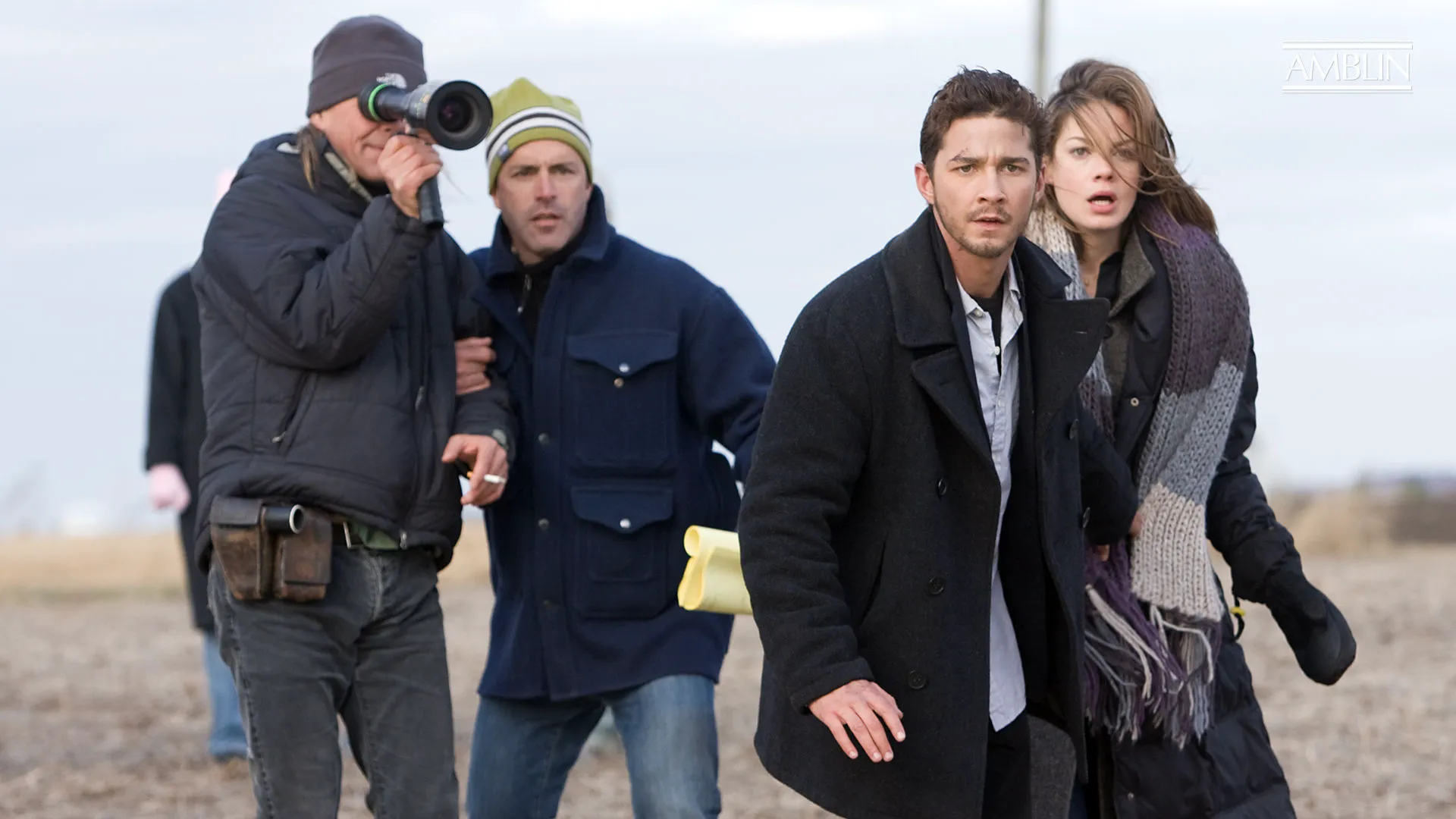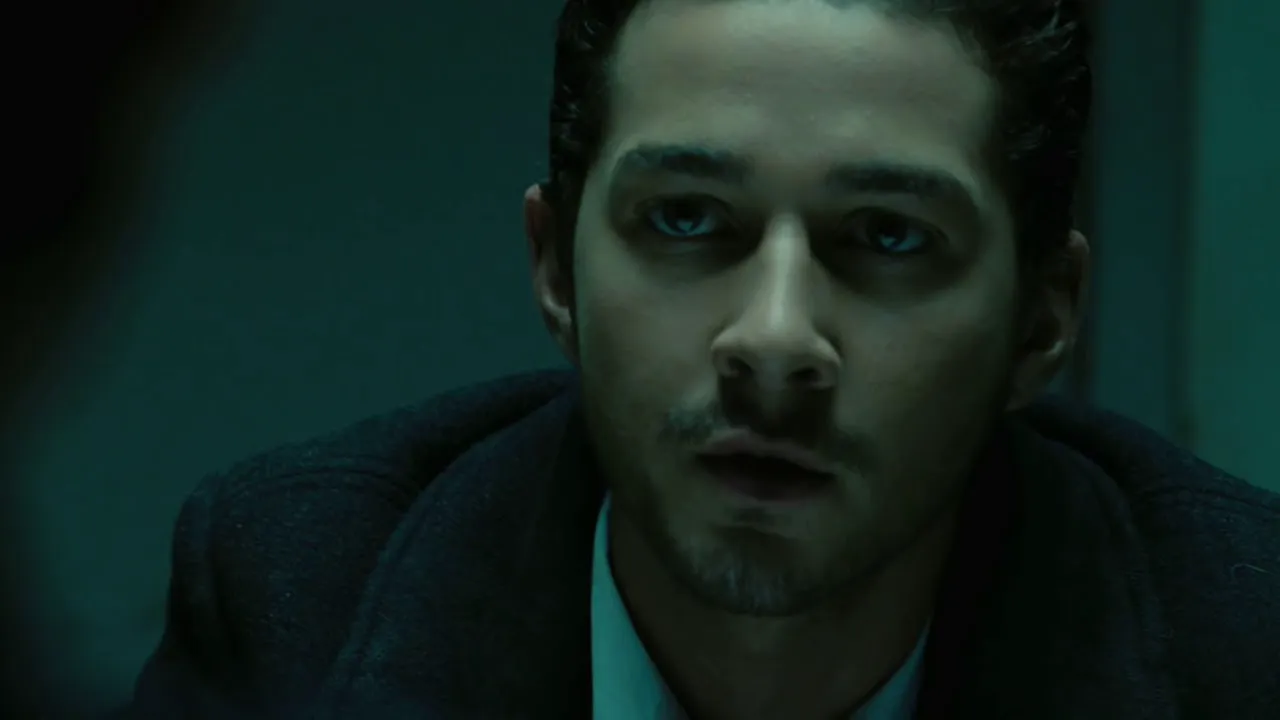Jerry Shaw receives a call on his cell phone from an unknown woman’s voice, informing him that he has been “activated.” Suddenly, his life is turned upside down: money pours out of ATMs for him, strangers fill his apartment with terrorist paraphernalia, and he finds himself pursued by special services. Rachel, a divorced mother, also receives a call from the same female voice, warning her that her young son will die unless she meets with Jerry.

Jerry and Rachel are propelled through the film like metal balls in a pinball machine. They travel from city to city, evade the police, encounter other “activated” individuals, and remain completely unaware of the purpose behind their extreme journey. The female voice on the phone barely allows them to catch their breath and assess their situation until the very end. The director often provides the audience with even less information. For instance, the unsettling revelation that there are two unpleasant young men in this film, both played by Shia LaBeouf (as twin brothers), is delivered simultaneously with the news that one of them is already dead, and LaBeouf is attending his own funeral.

This narrative approach works exceptionally well when both characters are plunged into yet another action-packed episode. The ballet of excavators and port cranes, a chase through an airport’s sorting conveyor, and an escape from a crazed unmanned aircraft all appear more captivating when viewed from the perspective of a terrified character, while the audience is left in suspense, wondering where the film will lead. The precisely calculated and executed rhythm conceals almost all the shortcomings.
Homage or Rip-off?
It’s not immediately apparent that half of the film is brazenly, or rather, Tarantino-esque-ly, borrowed from Hitchcock. The aggressive aircraft and the plot involving a nationwide chase are taken from “North by Northwest,” while the finale is reminiscent of “The Man Who Knew Too Much.” D.J. Caruso is doing this for the second time. In 2007, he directed “Disturbia,” based on “Rear Window.” That film also starred Shia LaBeouf, who can hardly be considered a modern-day Cary Grant or James Stewart. It remains unclear how the director manages to create decent thrillers from such material.
A Suggestion for the Future
Nevertheless, if Caruso is compelled to revisit Hitchcock once more, let it be “The Trouble with Harry,” where LaBeouf could play Harry himself.